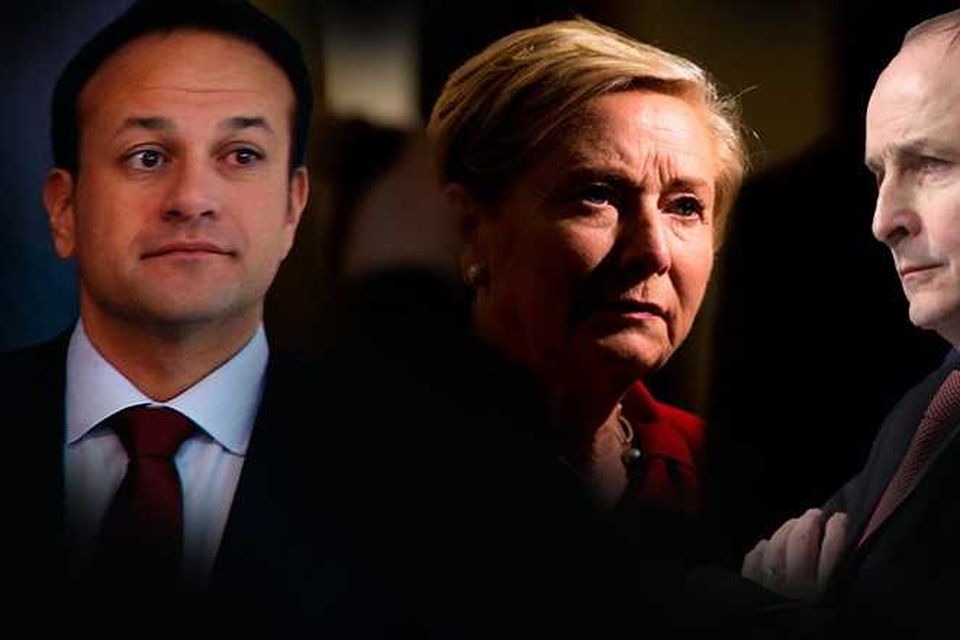Explainer: What does the latest political controversy mean for new politics?
A week of “political war” ended with the abrupt exit of Tánaiste, Frances Fitzgerald.
Does this mean “new politics” is dead – if it ever really lived?
John Downing answers four key questions:
A “hung Dáil” after the last election in February 2016 gave us a minority hybrid Coalition. It’s led by Fine Gael, includes diverse Independents, and needs the blessing of Fianna Fáil, from the opposition benches, via support votes – or abstention. That is called “new politics” as it replaces the old winner-takes-all Dáil model.
Not very well. Snail’s pace law-making led to accusations we have a “do-nothing-Dáil” talking for ever. But against some predictions two Budgets have been passed and job-creation has continued to slowly spread economic recovery.
On the minus side, we went from political stability to the brink of a snap general election in a matter of days. This complex but important row showed that any failure to reach pace-of-the-slowest agreement can topple the Government.
On the plus side, if we had a majority government, that row would have been shut down early via a Dáil vote backing Ms Fitzgerald. That could have meant important information being kept secret.
Yes, it can work and we’ll know more if this Irish Government, backed by key opposition parties, can deliver a good result on upcoming Brexit challenges. It is also challenged by a referendum on abortion due next summer.
But, No, it’s not good enough unless things quicken up. We all have only one short life to live and we cannot wait for ever on a snail’s pace political system.
Join the Irish Independent WhatsApp channel
Stay up to date with all the latest news














